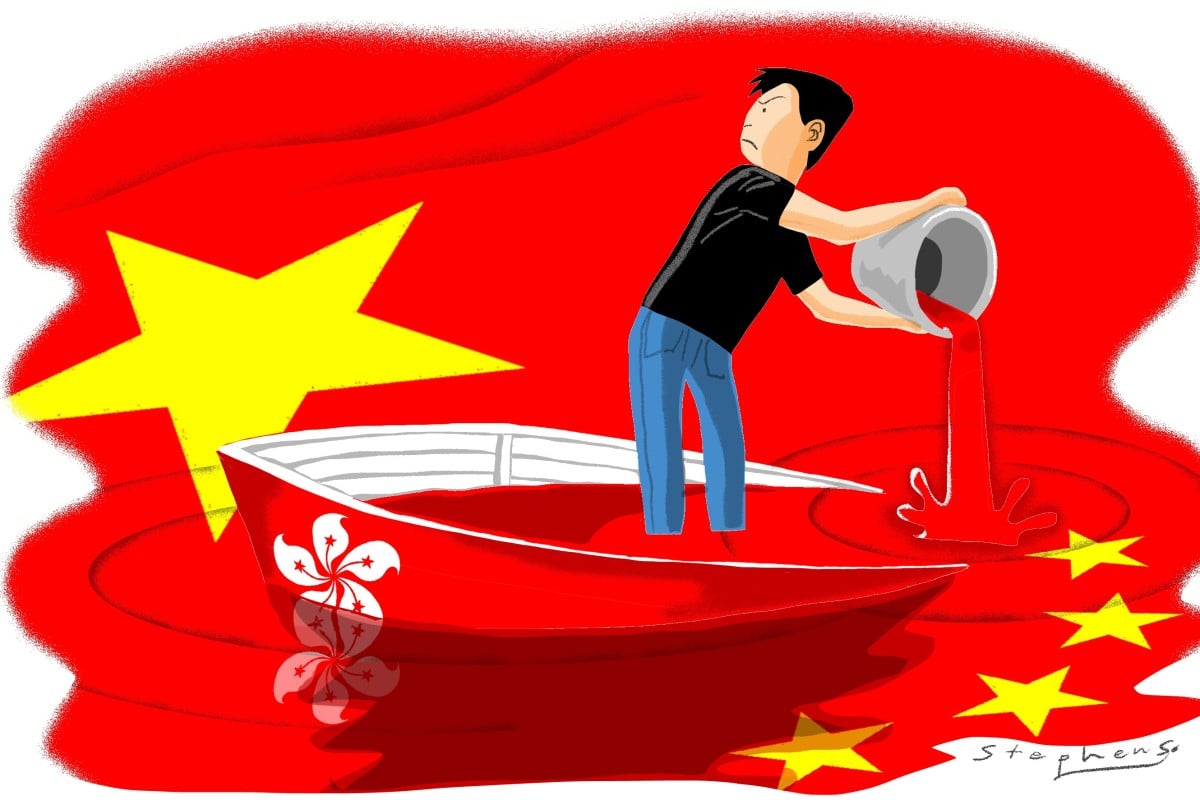- Joined
- Sep 22, 2008
- Messages
- 85,766
- Points
- 113
Audrey Jiajia Li
Hong Kong’s hatred of mainlanders feeds the xenophobic undercurrents of its protests

Audrey Jiajia Li
Published: 9:00am, 11 Oct, 2019


Illustration: Craig Stephens
Late last month, Jiayang Fan, a Chinese-American journalist, was harassed and interrogated by some demonstrators after she spoke Mandarin while covering the anti-government protests in Hong Kong. Derogatory insults and accusations like “yellow thug” and “commie agent” were thrown at her. “My Chinese face is a liability,” she
tweeted
, “just got asked if I’m from the US and am a reporter why I have Chinese face”.
On September 18, the 88th anniversary of the Japanese invasion of northeastern China, a poster celebrating the event, presumably posted by some protesters, was seen on the “democracy wall” at the University of Hong Kong. “This is the first time I see people fighting for democracy by glorifying second world war axis powers,” a fellow journalist
commented
on Twitter.
Recently, a
mainlander JPMorgan banker
was surrounded, told to “go back to the mainland” and punched in the face, his glasses knocked off, all for responding “we are all Chinese” in Mandarin. Also, in mid-August, when protesters occupied the Hong Kong airport, two mainlanders suspected of being undercover agents were
infamously
humiliated and assaulted.
Incidents such as these shed light on a more complicated, less-covered side of the months-long protests: the deep distrust and even hatred towards mainland Chinese as a whole, while the movement has largely been viewed by the world as just a fight between democracy and authoritarianism.
Hong Kong’s hatred of mainlanders feeds the xenophobic undercurrents of its protests
- Resentment of Beijing has spilled over towards mainlanders, Mandarin speakers and mainland-linked businesses. Shops are trashed, people are attacked and xenophobic slurs are becoming common. Hong Kong is succumbing to a wave of hate crime

Audrey Jiajia Li
Published: 9:00am, 11 Oct, 2019


Illustration: Craig Stephens
Late last month, Jiayang Fan, a Chinese-American journalist, was harassed and interrogated by some demonstrators after she spoke Mandarin while covering the anti-government protests in Hong Kong. Derogatory insults and accusations like “yellow thug” and “commie agent” were thrown at her. “My Chinese face is a liability,” she
tweeted
, “just got asked if I’m from the US and am a reporter why I have Chinese face”.
On September 18, the 88th anniversary of the Japanese invasion of northeastern China, a poster celebrating the event, presumably posted by some protesters, was seen on the “democracy wall” at the University of Hong Kong. “This is the first time I see people fighting for democracy by glorifying second world war axis powers,” a fellow journalist
commented
on Twitter.
Recently, a
mainlander JPMorgan banker
was surrounded, told to “go back to the mainland” and punched in the face, his glasses knocked off, all for responding “we are all Chinese” in Mandarin. Also, in mid-August, when protesters occupied the Hong Kong airport, two mainlanders suspected of being undercover agents were
infamously
humiliated and assaulted.
Incidents such as these shed light on a more complicated, less-covered side of the months-long protests: the deep distrust and even hatred towards mainland Chinese as a whole, while the movement has largely been viewed by the world as just a fight between democracy and authoritarianism.
